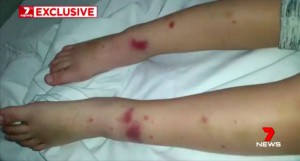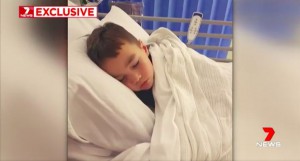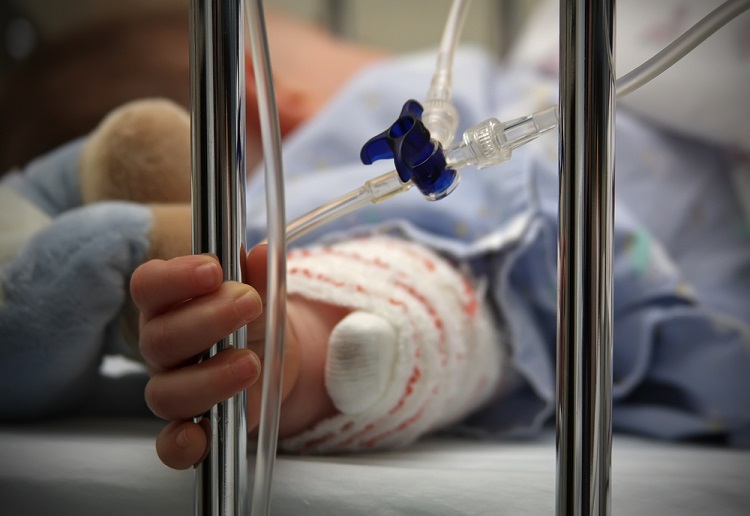Warning to parents about a virus affecting Australian children. It looks like meningococcal, but can develop in any child who catches a cold and can last a lifetime.
An Adelaide couple feared the worst when their son had a rash that looked like meningococcal disease.
Their five-year-old son, Dale Hayward, had played a game of football on a Sunday morning, and by that afternoon what looked like little mosquito bites had appeared all over his legs.
“I noticed that the spots got bigger, they got brighter,” the boy’s mother Darlene Harper said.
Then the spots spread down Dale’s lower body. By the time they got to hospital, his little feet were so swollen he couldn’t stand.
The rash had Dale’s mother thinking the worst – that her young boy had meningococcal.

The diagnosis was not quite as expected
It turned out to be a childhood illness called HSP, or Henoch-Schonlein purpura or IGA vasculitis.
It typically strikes in spring and is not uncommon.
Doctors don’t know the exact cause of HSP, but it usually follows a respiratory illness, like a cold or a flu, and is most common in boys under the age of six.

“We’d always recommend that when a child comes up with a rash that doesn’t blanch, that they be seen by a doctor or a nurse,” paediatrician Aggie Judkins said.
Sometimes HSP symptoms can last for months, and it can even cause permanent kidney damage.
Doctors say once they rule out meningococcal, pain relief is usually the only treatment.
Symptoms of HSP via Better Health
Common symptoms of HSP include:
Purple spotted skin rash (caused by bleeding into the skin), usually over the buttocks and legs. Rash may not be present on initial presentation
Painful joints, especially knees and ankles
Fluid retention (oedema) affecting the hands and feet
Abdominal pain and vomiting
Diarrhoea, sometimes bloody
Scrotal oedema in boys.
The symptoms of HSP are caused by immune cells latching onto blood vessel walls and triggering irritation and inflammation. Since most bouts of HSP tend to follow upper respiratory tract infections or hay fever, it is thought that the immune systems of some individuals react abnormally to particular bacteria or viruses, though the reasons for this are unknown.
Share your comments below.




















-

-
-
Blossom said
- 01 Sep 2018
-

-
-
Ellen said
- 30 Aug 2018

-

-
-
mom160421 said
- 29 Aug 2018
-

-
-
ashna9 said
- 29 Aug 2018
-

-
-
mom90758 said
- 29 Aug 2018
Post a comment5:28 am
7:57 am
9:39 pm
7:32 pm
2:48 pm
To post a review/comment please join us or login so we can allocate your points.